
During a Deep Dive segment of Medical World News®, CancerNetwork® sat down with Maurie Markman, MD, to discuss how lessons learned from the development of mRNA vaccines for COVID-19 can translate to cancer research.

Your AI-Trained Oncology Knowledge Connection!


During a Deep Dive segment of Medical World News®, CancerNetwork® sat down with Maurie Markman, MD, to discuss how lessons learned from the development of mRNA vaccines for COVID-19 can translate to cancer research.
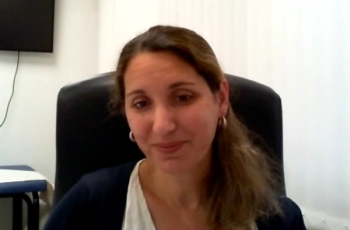
CancerNetwork® spoke with Ronnie Shapira-Frommer, MD, during the Society of Gynecological Oncology 2021 Virtual Annual Meeting on Women’s Cancer about her thoughts on the effect of the conference content across multidisciplinary specialties.
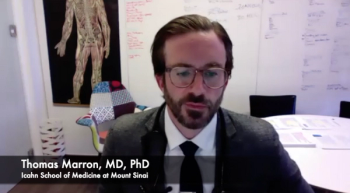
Marron discussed the primary objectives and early data from a phase 1 trial presented at the virtual AACR Annual Meeting regarding the neoantigen peptide vaccine, PGV-001.
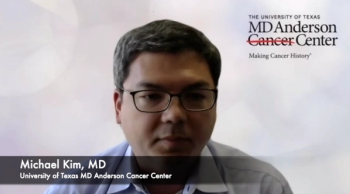
The MD Anderson expert discussed the main takeaway from the data published during the virtual AACR Annual Meeting, while looking forward to what comes next with these genetic drivers.

Dr Judd Moul and colleagues discuss best practices for monitoring patients with prostate cancer after definitive therapy.
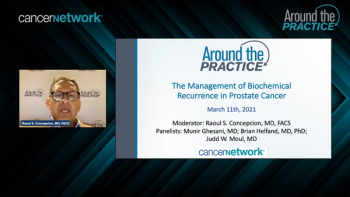
Dr Raoul Concepcion leads a panel of experts in prostate cancer in setting the stage for case-based discussions of biochemical recurrence.
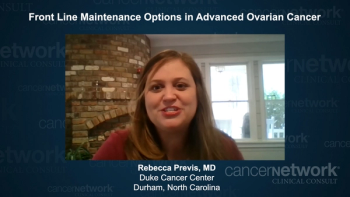
An expert oncologist reviews therapeutic options for front line maintenance in advanced ovarian cancer.
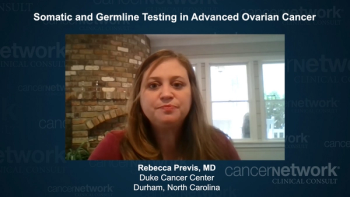
Dr. Rebecca Previs explains the importance of somatic and germline testing in guiding first line treatment selection in women with advanced ovarian cancer.

CancerNetwork® spoke with Ronnie Shapira-Frommer, MD, during the Society of Gynecological Oncology 2021 Virtual Annual Meeting on Women’s Cancer about patients with vulvar cancer who were treated with pembrolizumab monotherapy.

A presentation from the AACR Virtual Meeting: COVID-19 and Cancer detailed a literature review of natural therapeutics and remedies to combat the SARS CoV-2 virus.

CancerNetwork® spoke with Ronnie Shapira-Frommer, MD, during the Society of Gynecological Oncology 2021 Virtual Annual Meeting on Women’s Cancer about patients with vulvar cancer who were responders to pembrolizumab monotherapy.

CancerNetwork® spoke with Ronnie Shapira-Frommer, MD, during the Society of Gynecological Oncology 2021 Virtual Annual Meeting on Women’s Cancer about a cohort of patients with vulvar cancer treated with pembrolizumab monotherapy.

The American Cancer Society Cancer Action Network partnered with the National Comprehensive Cancer Network and the National Minority Quality Forum to produce recommendations addressing issues regarding health equity and disparities among minority patients with cancer.
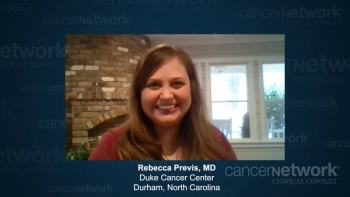
Dr. Rebecca Previs from the Duke Cancer Center reviews frontline therapy options for patients with advanced ovarian cancer.

CancerNetwork® spoke with Ronnie Shapira-Frommer, MD, during the Society of Gynecological Oncology 2021 Virtual Annual Meeting on Women’s Cancer about data focusing on a cohort of patients with vulvar cancer treated with pembrolizumab monotherapy.
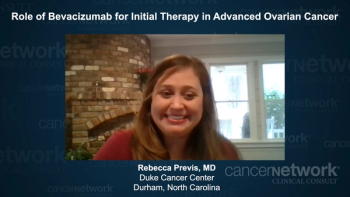
An expert in gynecologic oncology talks about the role of bevacizumab in the front-line management of advanced ovarian cancer.
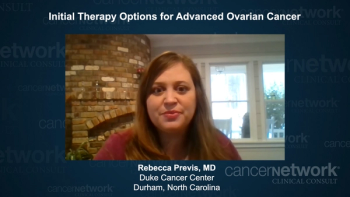
Dr. Rebecca Previs reviews first line treatment options for patients with advanced ovarian cancer.
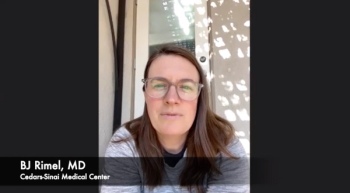
Rimel, of the Cedars-Sinai Medical Center, focused her attention on the main takeaways to come out from the 2021 Society of Gynecologic Oncology Annual Meeting on Women’s Cancer.
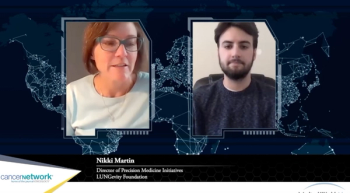
CancerNetwork® spoke with Nikki Martin of the LUNGevity Foundation regarding the “No One Missed” campaign working to provide education and awareness to patients with lung cancer.

Christopher Lieu, MD, discusses the standard of care for genomic profiling in early stage CRC.
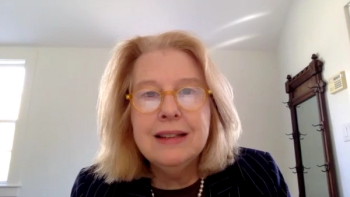
CancerNetwork® discussed updates in the treatment of gynecologic cancers with Ursula A. Matulonis, MD.
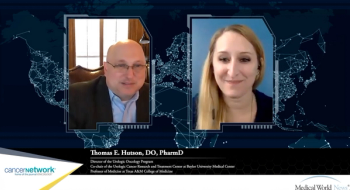
CancerNetwork® sat down with Thomas Hutson, DO, PharmD, to discuss results of the CLEAR trial presented at the recent Genitourinary Cancers Symposium.
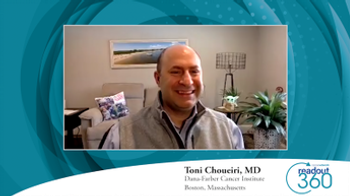
Drs Toni Choueiri and Robert J. Motzer highlight various strategies with novel-based therapies being explored to address limitations surrounding the treatment of metastatic renal cell carcinoma.
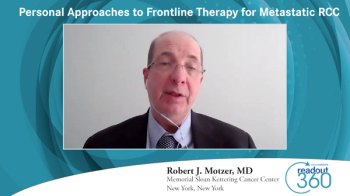
Considerations regarding the value of using the IMDC (International Metastatic Renal Cell Carcinoma Database Consortium) criteria to risk-stratify patients with metastatic renal cell carcinoma as novel therapies become more widely used.

Recommendations regarding how to use novel combinations such as lenvatinib and everolimus, or lenvatinib plus pembrolizumab as frontline therapy for metastatic renal cell carcinoma.

Treatment-related adverse events to be mindful of when treating patients with metastatic renal cell carcinoma with a TKI/IO regimen, such as lenvatinib and pembrolizumab, in the frontline setting.

Robert J. Motzer, MD, of the Memorial Sloan Kettering Cancer Center, discusses the rationale for studying lenvatinib plus pembrolizumab or everolimus for frontline metastatic renal cell carcinoma treatment and reacts to outcomes of the phase 3 CLEAR study as presented at ASCO GU 2021.

Drs Toni Choueiri and Robert J. Motzer discuss factors that impact their decisions for treatment of metastatic renal cell carcinoma in the first-line setting and highlight their go-to regimens.

Toni Choueiri, MD, of the Dana-Farber Cancer Institute, comments on the impact of emerging data presented on newer, novel combination therapies as upfront treatment for patients with metastatic renal cell carcinoma.

Drs Toni Choueiri and Robert J. Motzer reflect on recent data supporting the use of TKI/I-O combination regimens for frontline treatment of metastatic renal cell carcinoma.